
Traders often believe they're making logical decisions, but psychology plays a bigger role than most realize. Certain mental effects can quietly influence how we enter, manage, or exit trades. These patterns don't come from strategy or technicals. They come from how our minds respond to pressure, especially when dealing with wins and losses.
In this article, we’ll explain the most common effects that reveal themselves while trading.
In psychology, an "effect" usually describes a mental shortcut or behavioral pattern that influences how we perceive information or make decisions. These effects are automatic. We don’t consciously choose them, but they still guide our reactions, especially under stress or uncertainty.
In trading, effects like these can push you to exit too early, hold too long, or follow others without thinking twice. Unlike trading strategies or indicators, these effects don’t show up on a chart. They happen in your head, often without you noticing.
Being aware of these effects helps you spot patterns in your own thinking and create safeguards to avoid costly mistakes.
These psychological effects don’t just show up in theory. They influence real trades, real losses, and real missed opportunities. These mental patterns can slip in and shape your actions even if you are just starting out or managing a large portfolio.
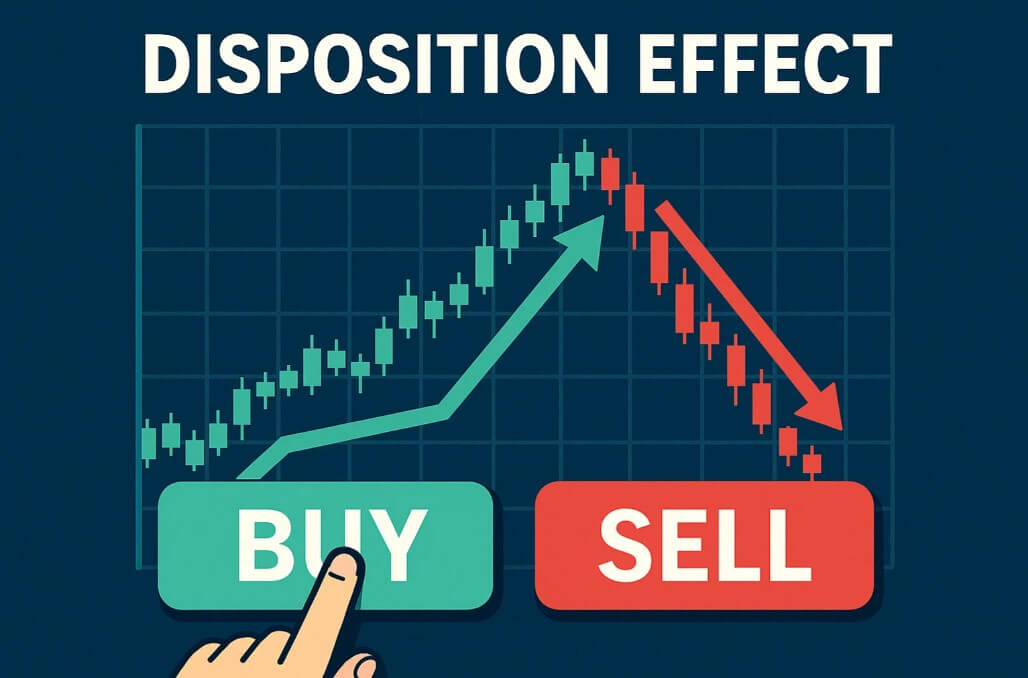
The disposition effect is when traders take profits too quickly but hold onto losing trades for too long. It usually happens because they want to lock in small gains and don’t want to admit they were wrong on a losing trade.
You buy a pair of shoes that don’t fit right. Even though you never wear them, you keep them because you already spent the money. At the same time, you’re quick to return something else just to avoid the feeling of wasting cash.
Traders often close profitable trades too early, afraid of giving back gains. At the same time, they let losing trades run, hoping the price will recover. Over time, this habit reduces consistency and weakens your overall strategy.
How to avoid:
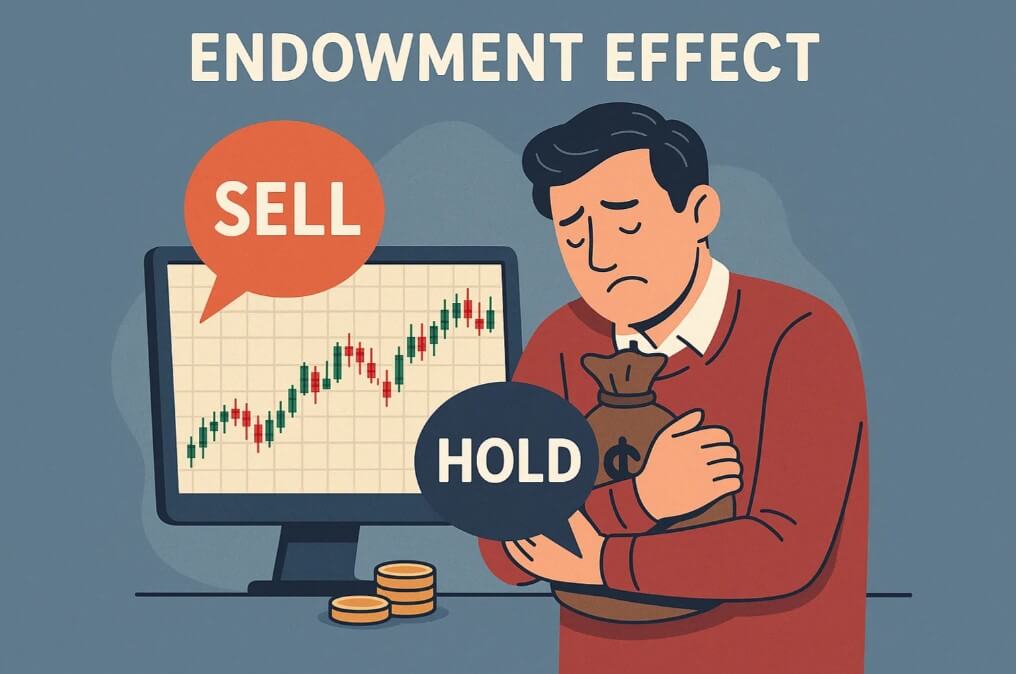
The endowment effect is the tendency to place more value on something simply because you own it. This emotional attachment often leads to irrational decisions, especially when it comes to letting go.
You might have an old phone that you no longer use, but you’re still unwilling to sell it at market value. Since it’s “yours,” it feels like it’s worth more, even if it’s collecting dust.
Traders often overvalue their own positions just because they chose them. A stock or trade idea becomes “yours,” and it gets harder to cut the trade or admit that the setup is no longer valid. This can lead to holding weak trades longer than you should.
Practice these instead:
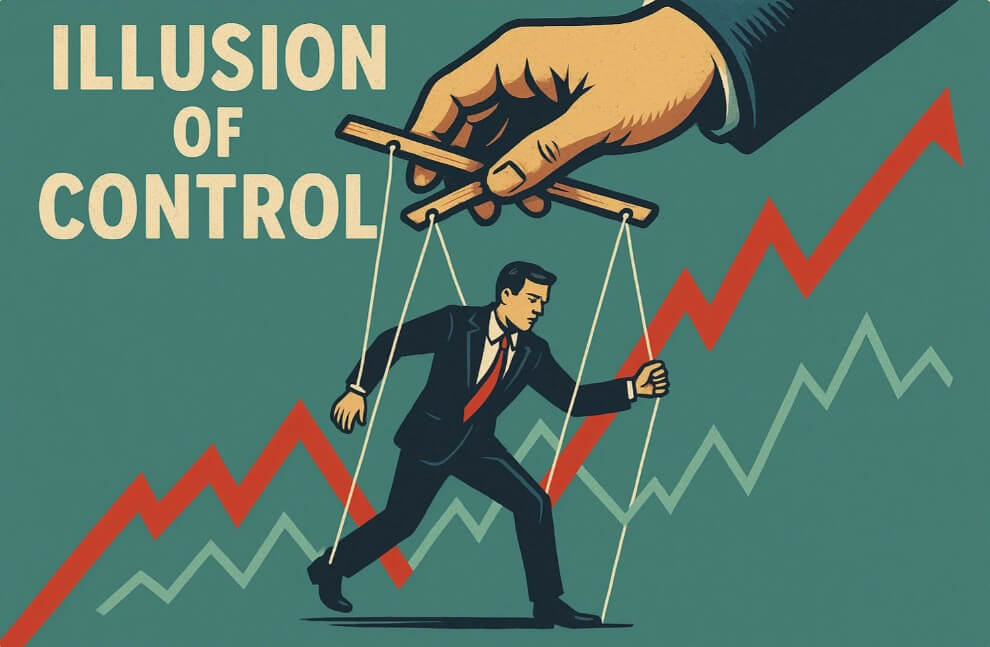
The illusion of control is the belief that you have more influence over outcomes than you really do. In trading, this often shows up when traders start thinking their actions can shape the market, rather than just react to it.
A person might feel they have a better chance of winning the lottery because they picked their own numbers, even though the odds are completely random.
Traders may believe that their experience, intuition, or timing gives them more control over price movements. This mindset can lead to risky behaviors like removing stop-losses, overtrading, or holding onto a bias long after the market has shifted.
Use these tips:
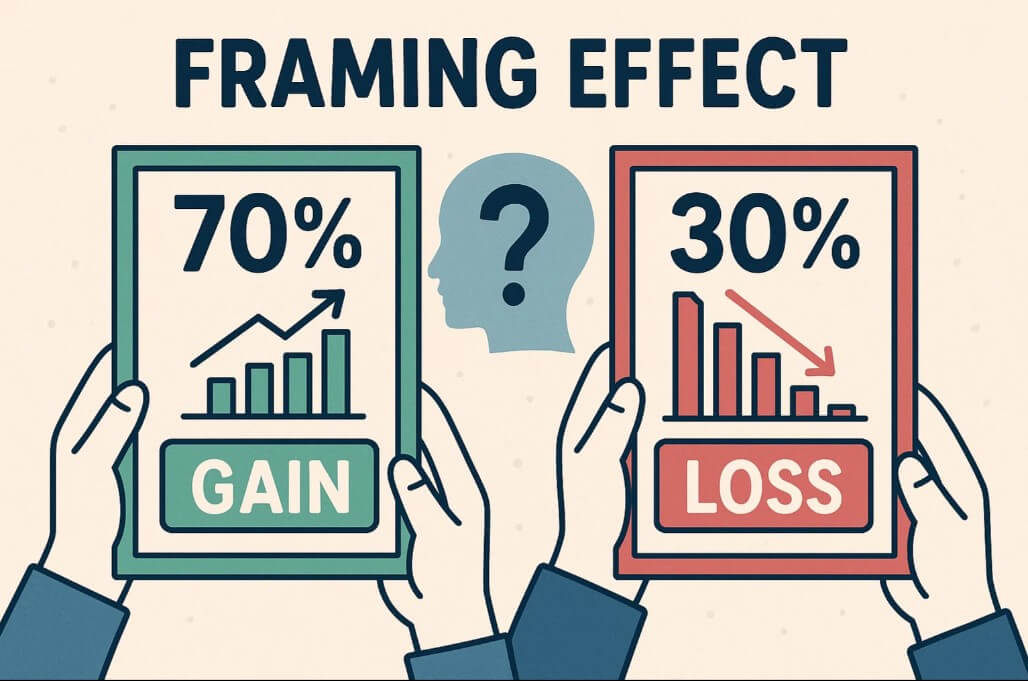
The framing effect happens when people make different decisions based on how information is presented, even if the underlying facts are the same. In trading, this can distort how we evaluate risk and reward.
People are more likely to choose a product labeled “90% fat-free” over one that says “10% fat,” even though both mean the same thing. The way it’s framed changes perception.
A trader might feel more confident buying a stock that's “down 20% from its highs” rather than one that’s “still falling,” even if both descriptions are about the same asset. The language used in market commentary or even trading platforms can shape how opportunities and risks are viewed.
How to avoid this mindset:
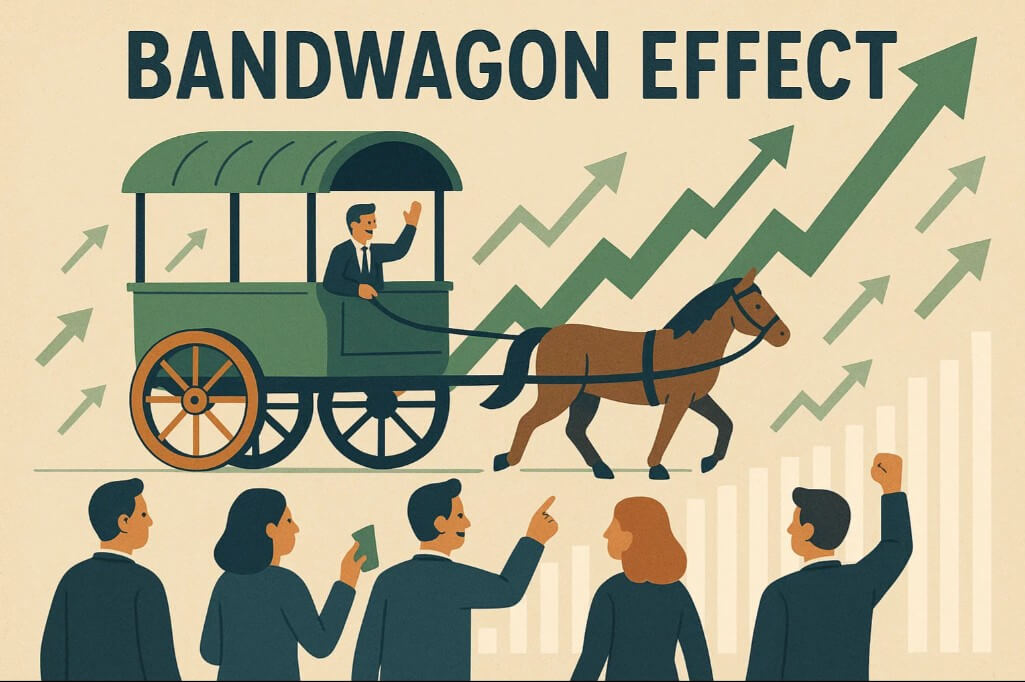
The bandwagon effect is the tendency to do something primarily because others are doing it, regardless of your own analysis or reasoning. In trading, this often shows up during hype cycles or sudden surges in volume.
When a crowd gathers around a street performer, more people join just because others are watching, not necessarily because the performance is worth seeing.
Traders may jump into trending assets simply because they're being talked about on social media, in trading groups, or in financial news. These decisions often happen without checking if the setup fits their own strategy. It can lead to poor timing, buying into tops, or entering with no clear exit plan.
Keep a clear head by:
1. Can I have more than one psychological effect influencing me in the same trade?
Yes. It's common for multiple effects to overlap. You might fall into the bandwagon effect by entering a popular trade, then experience the disposition effect by exiting it too early. That’s why reviewing trades with a clear mind is essential.
2. Is it still a psychological effect if I know I’m doing it?
Awareness is a good first step, but recognizing a bias doesn’t always stop it. The real change happens when you set your safety net in place; like predefined rules and follow them.
3. Do psychological effects only happen during losing streaks?
Not at all. Winning streaks can trigger just as many biases. Overconfidence, increased position sizing, or skipping analysis because “it worked last time” are common when things are going well.
4. How do I know if I’m trading based on logic or just reacting emotionally?
Ask yourself: “Would I make this same decision if I wasn’t in the trade?” If your answer changes depending on your current position, your emotions might be in control.
5. Are certain effects more common in short-term trading than long-term investing?
Yes. Intraday or high-frequency traders are more exposed to effects like overconfidence, recency bias, and illusion of control. Longer-term investors may deal more with anchoring or endowment effects.
6. Should I avoid all emotions when trading?
You can’t ignore your emotions completely, but you can separate it from execution. Feelings are part of being human. The key is to keep them out of your entry, exit, and risk decisions.
7. What’s the biggest sign that psychology is hurting my performance?
If you consistently break your own rules, hesitate on clear setups, or dwell too much on past trades, chances are your mindset is working against you. That’s the moment to pause and realign.
Psychological effects don’t disappear with experience or market knowledge. They show up in different ways, often when we least expect it; during a winning streak, after a tough loss, or when the market moves faster than we’re prepared for.
The good news is that you don’t need to be perfect at trading. You just need to be aware, honest with yourself, and willing to build habits that guide you toward more thoughtful actions.
 Precious Metals Outlook After the Deep Correction
Precious Metals Outlook After the Deep Correction
Precious metals reversed from record highs after a sharp correction. See what triggered the selloff and what it means for gold and silver prices.
Detail USDCHF Outlook 2026: Why the Swiss Franc Is Strengthening
USDCHF Outlook 2026: Why the Swiss Franc Is Strengthening
USDCHF entered 2026 under strong selling pressure. The weakening U.S. dollar appears to be the main reason. Volatility has also increased.
Detail DXY, Bitcoin, and Gold: How the Relationship Works
DXY, Bitcoin, and Gold: How the Relationship Works
DXY, Bitcoin, and gold have an interesting relationship. When the dollar strengthens, risk assets feel pressure. When the dollar weakens, liquidity improves and markets tend to breathe.
DetailThen Join Our Telegram Channel and Subscribe Our Trading Signals Newsletter for Free!
Join Us On Telegram!